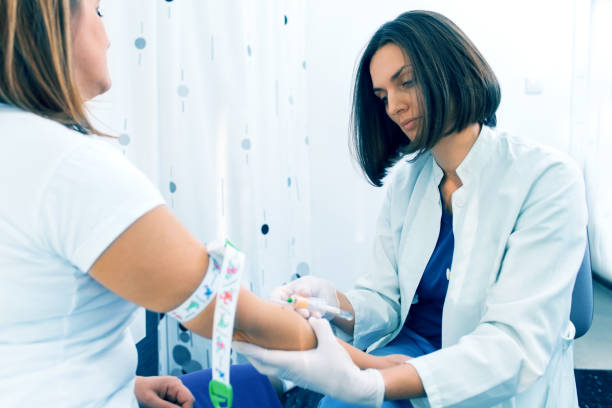Donating Plasma for Money: An In-Depth Guide
Introduction to Plasma Donation
Plasma donation is a process that involves extracting the liquid component of your blood, known as plasma, and returning the red blood cells and other components to your body. This liquid gold, as it is often referred to, is used to create therapies for various medical conditions, including immune deficiencies, hemophilia, and other blood disorders. Donating plasma not only provides a valuable resource for those in need but also offers a financial incentive for the donor. This guide will explore the process, benefits, and considerations of donating plasma for money.
Understanding Plasma
Plasma is the largest component of human blood, making up about 55% of its overall content. It is a light yellow liquid that carries water, salts, enzymes, antibodies, and other proteins throughout the body. Plasma serves several crucial functions, including maintaining blood pressure and volume, supplying critical proteins for blood clotting and immunity, and carrying electrolytes to muscles and cells. Its unique properties make it indispensable in the medical field.
The Plasma Donation Process
The process of donating plasma is straightforward but slightly more complex than regular blood donation. It involves several steps:
- Pre-Donation Screening: Before donating plasma, you must undergo a thorough health screening. This includes a questionnaire about your medical history, lifestyle, and travel history to ensure you are eligible to donate. A physical examination is also conducted, and your vital signs are checked.
- Plasmapheresis: This is the actual donation process. A needle is inserted into your vein, and your blood is drawn out and passed through a plasmapheresis machine. This machine separates the plasma from the other blood components, which are then returned to your body through the same needle. The process typically takes about 90 minutes.
- Post-Donation Care: After the donation, you are advised to rest and hydrate. You may also receive snacks and beverages to help replenish your energy levels. It’s important to follow any additional care instructions provided by the donation center.
Benefits of Donating Plasma
Donating plasma offers several benefits, both for the donor and for patients in need of plasma-derived therapies:
- Financial Compensation: One of the primary incentives for donating plasma is the financial compensation. Many centers offer payments ranging from $20 to $50 per donation, and some even provide bonuses for frequent donors. This can be a helpful source of extra income.
- Helping Others: Plasma donations are crucial for creating life-saving treatments for patients with various medical conditions. By donating plasma, you are directly contributing to the health and well-being of others.
- Health Benefits: Regular plasma donation can help you stay healthy. The pre-donation health screenings can detect potential health issues early on. Additionally, the process can help your body regulate iron levels.
Considerations and Risks
While donating plasma is generally safe, it’s important to be aware of the potential risks and considerations:
- Temporary Side Effects: Some donors may experience temporary side effects such as dizziness, fatigue, or bruising at the needle site. These are usually mild and can be managed with proper care and hydration.
- Eligibility Criteria: Not everyone is eligible to donate plasma. Factors such as age, weight, medical history, and lifestyle choices can affect your eligibility. It’s important to disclose all relevant information during the screening process.
- Time Commitment: Plasma donation takes longer than regular blood donation. You should be prepared to spend about 90 minutes for each session, plus additional time for pre-donation screening and post-donation care.
Finding a Plasma Donation Center
To donate plasma for money, you need to find a licensed and reputable donation center. Many centers are located throughout the country, and you can search online or ask for recommendations from friends or healthcare providers. It’s important to choose a center that follows strict safety protocols and provides adequate compensation for your time and effort.
Preparing for Your Donation
To ensure a smooth donation experience, it’s important to prepare adequately:
- Stay Hydrated: Drink plenty of water before your donation to ensure your blood volume is adequate and the donation process is smoother.
- Eat a Healthy Meal: Eating a balanced meal with adequate protein and iron a few hours before your donation can help maintain your energy levels and reduce the risk of dizziness.
- Avoid Alcohol and Caffeine: These substances can dehydrate you and affect your ability to donate. It’s best to avoid them for at least 24 hours before your donation.
- Get Plenty of Rest: Being well-rested can help your body recover more quickly after the donation.
What to Expect During Your First Donation
If you are donating plasma for the first time, it’s natural to feel a bit anxious. Here’s what you can expect:
- Registration: You will be asked to provide identification and complete a health questionnaire.
- Screening: A healthcare professional will conduct a physical examination and check your vital signs.
- Donation: You will be seated in a comfortable chair, and a needle will be inserted into your vein. The blood will be drawn, and the plasma will be separated and collected in a sterile container.
- Post-Donation: After the donation, you will be monitored for a short period to ensure you are feeling well. You will also be given refreshments to help replenish your energy.
Regular Donation Schedule
Many centers allow you to donate plasma up to twice a week, with at least 48 hours between donations. This frequency is generally safe for healthy individuals and can provide a steady source of extra income. However, it’s important to listen to your body and take breaks if you experience any adverse effects.
Conclusion: The Impact of Plasma Donation
Donating plasma for money is a rewarding experience that provides financial benefits while helping save lives. It’s a process that requires a bit of time and commitment, but the impact on patients who rely on plasma-derived therapies is immeasurable. If you meet the eligibility criteria and are looking for a way to earn extra income while making a positive difference in the world, plasma donation is a great option to consider. By following the guidelines and taking care of your health, you can become a valuable part of the plasma donation community.




